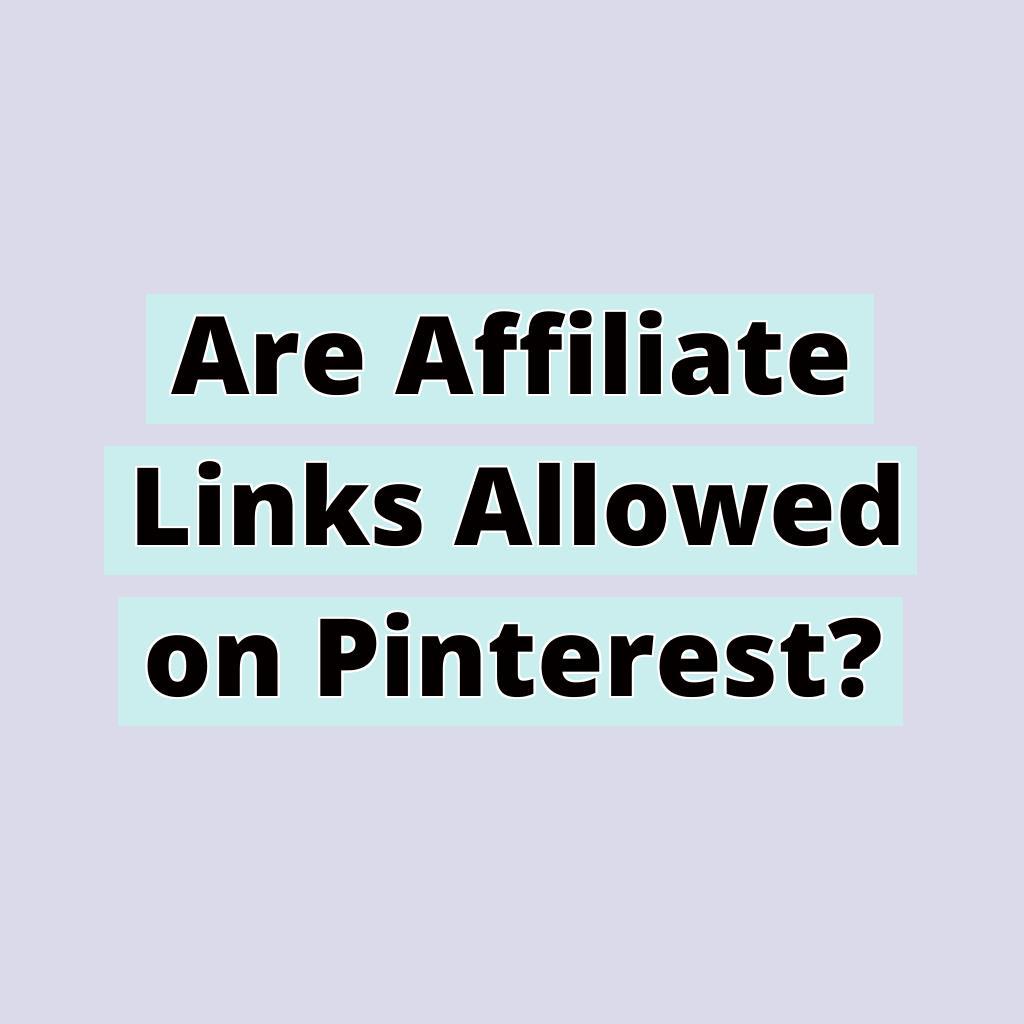As an avid Pinterest user and content creator, I’ve always been intrigued by the idea of using affiliate links to monetize my pins. Pinterest, with its visually appealing platform, offers a unique opportunity for individuals and businesses to showcase products and drive traffic to their websites. However, the question of whether affiliate links are allowed on Pinterest has been a topic of debate among users and marketers. In this blog post, I aim to delve into the world of affiliate marketing on Pinterest to uncover the guidelines and best practices for using affiliate links on the platform.
Understanding Affiliate Marketing and Pinterest
Affiliate marketing involves promoting products or services and earning a commission for each sale or action generated through your promotional efforts. Pinterest, as a social media platform, is centered around visual content, making it an ideal space for showcasing products and inspiring users to make purchases. However, Pinterest has specific guidelines regarding the use of affiliate links to maintain the quality and user experience of the platform.
The Pinterest Affiliate Marketing Policy
Pinterest’s stance on affiliate marketing is outlined in its Acceptable Use Policy and Advertising Guidelines. According to Pinterest’s official stance, affiliate links are allowed on the platform, provided that they are used tastefully and ethically. This means that users can incorporate affiliate links into their pins and content as long as they are transparent about the affiliate relationship and the primary purpose of the content is not to drive affiliate sales.
Best Practices for Using Affiliate Links on Pinterest
While affiliate links are permitted on Pinterest, it’s essential to adhere to best practices to ensure compliance with the platform’s policies and to maintain a positive user experience. Here are some best practices for using affiliate links on Pinterest:
-
Disclose Your Affiliate Relationship: Whenever you include an affiliate link in your pins, it’s crucial to disclose your affiliate relationship. This can be done by adding a simple disclosure, such as “This post contains affiliate links,” in the pin description.
-
Focus on Value-Adding Content: Instead of solely promoting products, focus on creating valuable and engaging content that genuinely benefits your audience. Whether it’s through product reviews, tutorials, or curated lists, aim to provide content that enriches the Pinterest experience.
-
Diversify Your Content: Avoid overwhelming your audience with an abundance of affiliate links. Instead, diversify your content by sharing a mix of non-affiliate and affiliate pins to maintain a balanced and authentic presence on the platform.
-
Respect Pinterest’s Community Guidelines: Ensure that your content aligns with Pinterest’s community guidelines and does not promote prohibited content such as misleading claims, illegal products, or unsafe practices.
Overcoming Challenges and Maximizing Opportunities
While using affiliate links on Pinterest can be a rewarding endeavor, it’s not without its challenges. One common obstacle is ensuring that affiliate links lead to high-quality and relevant content, as Pinterest prioritizes user experience and content quality. To overcome this, it’s crucial to thoroughly vet the products or services you promote and ensure that they align with the interests of your audience.
Additionally, leveraging Pinterest’s features such as Rich Pins and Story Pins can enhance the visibility and engagement of your affiliate content. Rich Pins provide additional context about the pinned content, while Story Pins enable you to create immersive, tappable narratives around the products or services you’re promoting.
The Bottom Line
In conclusion, affiliate links are indeed allowed on Pinterest, and when used thoughtfully and ethically, they can be a valuable revenue stream for content creators and businesses. By following Pinterest’s guidelines, disclosing affiliate relationships, and prioritizing valuable content, users can leverage the power of affiliate marketing while respecting the integrity of the platform. As with any marketing strategy, authenticity, transparency, and user-centricity should remain at the forefront of your approach to affiliate marketing on Pinterest. Embracing these principles can lead to a harmonious coexistence between affiliate marketing and the visually captivating world of Pinterest.
